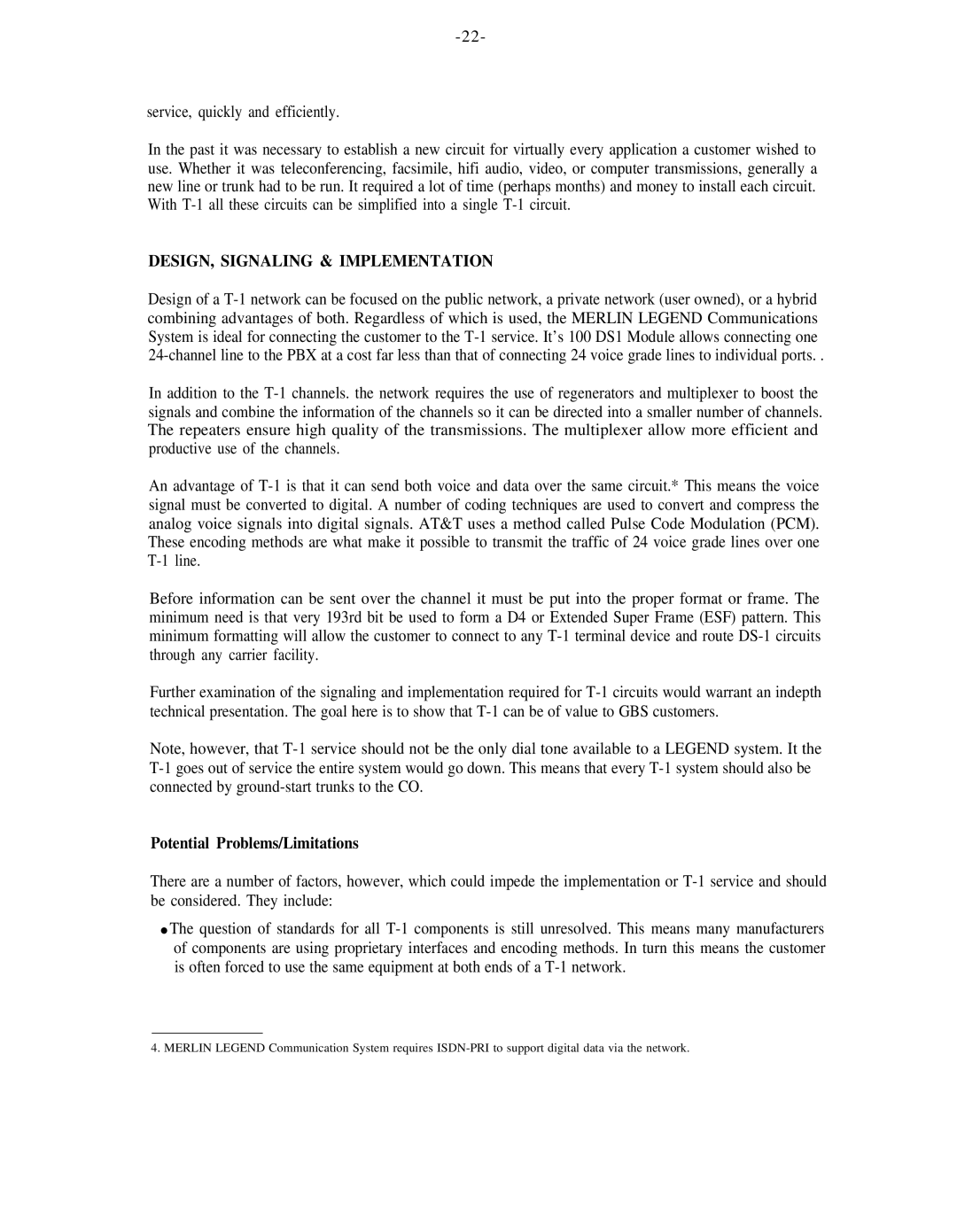-22-
service, quickly and efficiently.
In the past it was necessary to establish a new circuit for virtually every application a customer wished to use. Whether it was teleconferencing, facsimile, hifi audio, video, or computer transmissions, generally a new line or trunk had to be run. It required a lot of time (perhaps months) and money to install each circuit. With T-1 all these circuits can be simplified into a single T-1 circuit.
DESIGN, SIGNALING & IMPLEMENTATION
Design of a T-1 network can be focused on the public network, a private network (user owned), or a hybrid combining advantages of both. Regardless of which is used, the MERLIN LEGEND Communications System is ideal for connecting the customer to the T-1 service. It’s 100 DS1 Module allows connecting one 24-channel line to the PBX at a cost far less than that of connecting 24 voice grade lines to individual ports. .
In addition to the T-1 channels. the network requires the use of regenerators and multiplexer to boost the signals and combine the information of the channels so it can be directed into a smaller number of channels. The repeaters ensure high quality of the transmissions. The multiplexer allow more efficient and productive use of the channels.
An advantage of T-1 is that it can send both voice and data over the same circuit.* This means the voice signal must be converted to digital. A number of coding techniques are used to convert and compress the analog voice signals into digital signals. AT&T uses a method called Pulse Code Modulation (PCM). These encoding methods are what make it possible to transmit the traffic of 24 voice grade lines over one T-1 line.
Before information can be sent over the channel it must be put into the proper format or frame. The minimum need is that very 193rd bit be used to form a D4 or Extended Super Frame (ESF) pattern. This minimum formatting will allow the customer to connect to any T-1 terminal device and route DS-1 circuits through any carrier facility.
Further examination of the signaling and implementation required for T-1 circuits would warrant an indepth technical presentation. The goal here is to show that T-1 can be of value to GBS customers.
Note, however, that T-1 service should not be the only dial tone available to a LEGEND system. It the T-1 goes out of service the entire system would go down. This means that every T-1 system should also be connected by ground-start trunks to the CO.
Potential Problems/Limitations
There are a number of factors, however, which could impede the implementation or T-1 service and should be considered. They include:
●The question of standards for all T-1 components is still unresolved. This means many manufacturers of components are using proprietary interfaces and encoding methods. In turn this means the customer is often forced to use the same equipment at both ends of a T-1 network.
